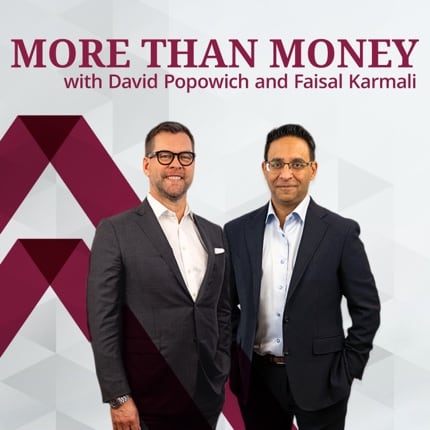It’s difficult to reach your destination without actually knowing where you’re headed. And it’s hard to achieve your goals if you haven’t clearly identified them. That’s why PKAG’s retirement planning process always begins with this question: What’s your vision for retirement?
And while financial goals are important, retirement is about so much more than money.
What are the bucket list experiences that you want to start checking off the list? Where are your dream travel destinations? What experiences have you been putting off during your working years?
What do you want your day-to-day life to look like? How do you want to spend your time and who do you want to spend it with? Your answer can involve anything from driving your grandchildren to school to volunteering in your community or joining an exercise class.
The beauty of retirement is that your time is now your own – you can spend it however you like. But if you don’t have a plan to make it count, it may slip through your fingers.
Setting S.M.A.R.T. goals
Many of you will have heard of S.M.A.R.T. goals – it’s a popular framework that breaks down your big dreams into actionable steps. It helps you set goals that are:
- Specific: Clearly define what you want to achieve.
- Measurable: Determine what success looks like to you and how you can track your progress.
- Achievable: Ensure your goals are reasonable and attainable.
- Relevant: Align your goals with your values and priorities.
- Time-bound: Assign a timeline to your goals to keep you focused and moving forward.
Whether your goals involve your health (i.e. exercising for 30 minutes 3 times a week), personal growth (i.e. taking a class on photography), or social connections (i.e. joining a book club), this simple acronym can help set you up for success in retirement.
How to set S.M.A.R.T. goals
Everyone loves a catchy acronym, but how do you actually go about setting goals that are specific, measurable, achievable, relevant, and time-bound? Start by asking yourself the following questions:
What matters to me?: This is a broad question, but it will help you start to narrow in on what you value and what you want to prioritize in retirement. For example, if you value personal growth and don’t want to stop learning just because you’re retired, one of your goals may be taking a class on anything from literature to salsa dancing.
How do I define success?: We’re so much more likely to stick to our goals if we can measure our regular progress. So try breaking your goals into more manageable milestones. For example, if you want to focus on your health in retirement, aim to walk 5,000 steps a day and if you achieve that milestone in 6 months, increase that number to 10,000 steps.
Are your goals realistic?: Dreaming big is great, but if your goals aren’t realistic you’re setting yourself up for disappointment. Take things like your financial situation and your health into consideration and, if your goal feels overwhelming, start smaller.
Do your goals reflect your values?: Why are you setting this goal? Will it contribute to your happiness, health, or financial stability? Retirement goals should reflect what you care about most.
What’s the deadline?: A goal without a deadline often falls by the wayside. Assigning a timeframe creates urgency and structure and motivates you to stay on track.
Tips to stay on track
Achieving your goals doesn’t just happen. It takes hard work. Here are some tips to help:
Write down your goals: According to a study by Dr. Gail Matthews, people who write down their goals are 42% more likely to achieve them than those who only think about them. Writing something down requires clarity and focus. It transforms abstract thoughts into concrete and actionable steps.
Celebrate the wins: Acknowledging even the small milestones you hit as you work to achieve your goals helps you stay motivated.
Review and adjust: Life changes, and so might your goals. Review them regularly to ensure they still align with your priorities.
Share your goals: Accountability is a key component of achieving your objectives. Telling a friend, family member, work out buddy (or even your financial advisor!) about your goals can help you stick to the plan.
Using the S.M.A.R.T. framework to set clear, realistic goals that reflect your values and dreams will empower you to enjoy your retirement to the fullest.
Don’t know where to start? We can help you identify your goals and build a plan to reach them. Register for our upcoming seminar by clicking here.
David Popowich and Faisal Karmali are Investment Advisors with CIBC Wood Gundy in Calgary. The views of David Popowich and Faisal Karmali do not necessarily reflect those of CIBC World Markets Inc. This information, including any opinion, is based on various sources believed to be reliable, but its accuracy cannot be guaranteed and is subject to change. CIBC Private Wealth consists of services provided by CIBC and certain of its subsidiaries, including CIBC Wood Gundy, a division of CIBC World Markets Inc. The CIBC logo and “CIBC Private Wealth” are trademarks of CIBC, used under license. “Wood Gundy” is a registered trademark of CIBC World Markets Inc.











